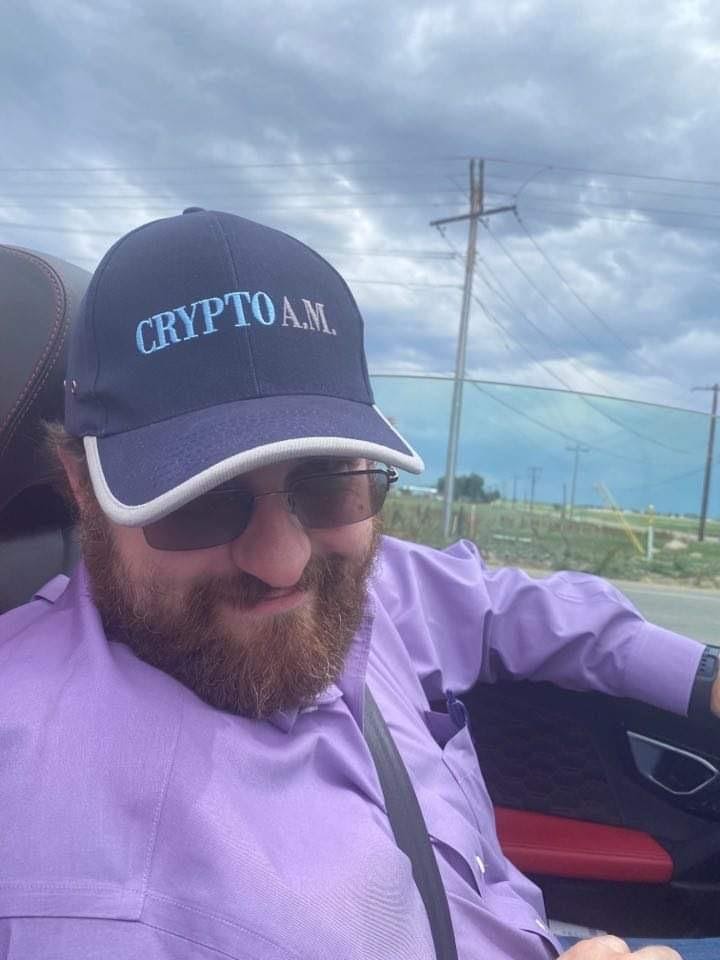Charles Hoskinson Talks Poets And Cuneiform Beauty And Blockchain

The first law of podcasting is to ensure that the record button is on, the second law of podcasting is to ensure that the record button is on… et cetera, et cetera.
That’s why in June 2020 the world was robbed of the best-ever conversation not recorded on a podcast between yours truly and Cardano Founder Charles Hoskinson on our ever-so-professional crypto and blockchain podcast BlockSpeak.
From all types of history to the notion of time and the opinions of our greatest thinkers, this conversation was one of the best I have had that didn’t happen in a pub.
Interviewing people is sometimes a thankless task. Most of the bigwigs have PR companies advising them every step of the way, self-isolated by shareholders and shielded by investors.
To use a cricketing term, these founders and CEOs offer a straight bat every time and even asking them to chuck in a small grenade to give our viewers something new is like asking them to kill a child.
Hoskinson, however, (and you’ll have to take my word for it) was brilliant and his humanity shone out of him like a shiny and professional podcast as we riffed on everything.
It got to the point that I was dizzy with knowledge and how all of art, culture and money led back to blockchain and the future history of ledgers, transactions and a bit of poetry.
So, it was great delight when I received the word from Cardano’s excellent ‘advisors’ that Hoskinson had enjoyed the previous conversation and had put us back on his Christmas card list. We were happy to have this early Christmas present.
It’s difficult to remember whether this conversation surpassed the lost basement tapes, but it began with a bang. Hoskinson had one of those Zoom backgrounds where every artefact looked interesting. A picture in the distance that I thought was a girl kissing a girl turned out to be a girl kissing a rose (my bad), but it was the cunieform tablets on his desk that broke what little ice there was between us.
Hoskinson said that the pink, inscribed tablet he showed to the screen was the first complaint letter ever written and then showed more tablets that looked texturally that within them they possessed the power of early Gods.
Not a bad start and the conversation naturally progressed to my copy of Euclid’s Elements that I have struggled to finish for years, but Hoskinson then took me on a voyage of other ancient books that I had never heard of, and I thought I had read everything. Obviously Finnegans Wake and Proust’s doorstopper are not enough if one thinks of being literate.
Then on to Cardano and the work it is doing to bring integrity and philosophy to blockchain and crypto by its recent projects, notably Shelley and Bryon, obvious references to British romantic poets.
After insisting that his next project be named Keats (and I’ll be watching, Charles) Hoskinson spoke about the new $250K fund that enables the blockchain community to realise ‘innovative applications of Cardano’.
This so-called Catalyst (should have been named it Wordsworth, Charles) funding mechanism will allow members of the Cardano community to vote on proposals to build the Cardano ecosystem and will act as an innovation incubator for funded projects.
The fund forms an integral part of Cardano’s goal to hand over the governance of the platform to its community. Starting with a pilot of $250k worth of its ada currency, the fund eventually aims to control around $70million per year.
And if you think this column is about a white male conversation with dead white male poets, be assured. The ada currency is pronounced A-da, as in Lovelace, the female genius who worked with Charles Babbage on the Analytical Engine, one of the world’s first computers.
And no, that isn’t in Hoskinson’s study, it’s the Science Musuem and I know that’s true because I’ve seen it for myself.
This fund will act as a pilot, eventually aiming to control around $70million of ada per year. This pilot has already received community submissions that include an abundance of proposals.
These include ideas to combat the housing crisis, use Cardano as a framework for decentralised, large-scale medical trials, to cut money transfer remittance fees, fight the ‘racketeering’ of the big ticket reselling agencies and encourage diversity in the blockchain space.
“One of our goals has always been to ‘reinvent’ venture capital and make it fairer and this fund is the next piece in the puzzle to achieve this. The fund, with its democratic voting system, means that every ada holder can be a part of making key decisions for the future of the ecosystem,” said Hoskinson.
As our conversation came to an end, I nearly had a heart attack and it wasn’t because of my epistemological overload… for one terrible second, I thought I had forgotten to press ‘record’.
Panic over, it was time to go. Final rule of blockchain podcasting. Always interview Charles Hoskinson, always interview Charles Hoskinson et cetera et cetera.